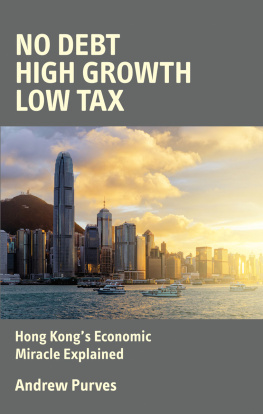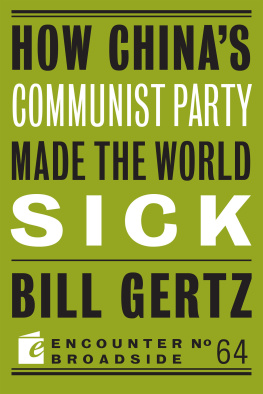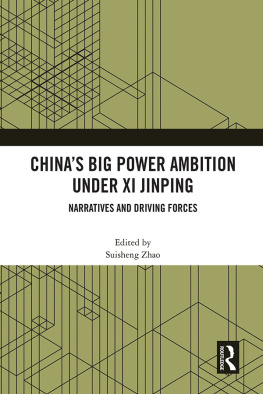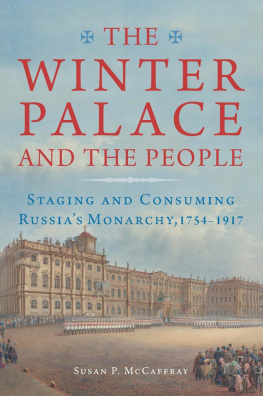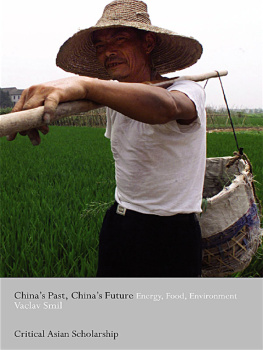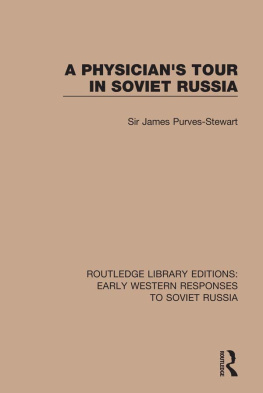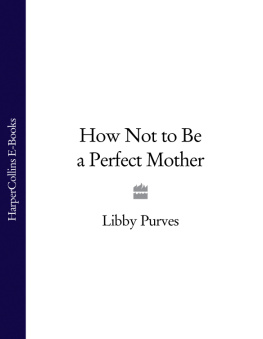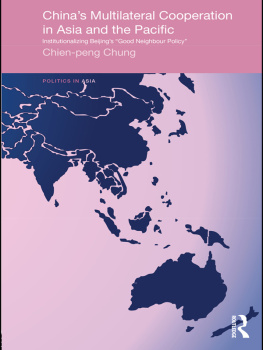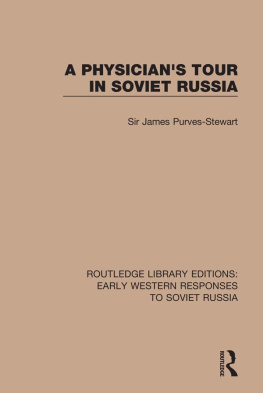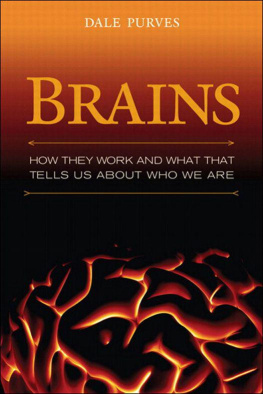THREE CHINAS
for
My Friends in the Three Chinas
THREE CHINAS
Bill Purves
NC Press Limited
Toronto 1994
Front Cover: Gerry Ginsberg
Bill Purves, 1994
No part of this publication may be reproduced, stored in a
retrieval system, or transmitted, in any form or by any means,
electronic, mechanical, photocopying, recording or otherwise,
without the prior written permission of NC Press Limited.
Canadian Cataloguing in Publication Data
Main Entry under title:
Three Chinas
Bibliography
Includes index
ISBN 1-55021-091-2
1. China Social conditions. 2. Taiwan Social
conditions. 3. Hong Kong Social conditions.
I. Title.
DS779.23.P87 1994 951.059 C93-095258-8
We would like to thank the Ontario Arts Council, the Ontario Publishing
Centre, the Ontario Ministry of Culture, Tourism and Recreation, the
Canada Council and the Government of Canada, Department of
Communications for their assistance in the production of this book.
New Canada Publications, a division of NC Press Limited,
Box 452, Station A, Toronto, Ontario, Canada, M5W 1H8.
Printed and bound in Canada
Contents
Preface
The people of Scotland, Quebec and Puerto Rico have democratically chosen to put their material well-being above nationalism and accept domination by a foreign culture. The Chinese have never been given the opportunity to express that kind of preference. In the tradition of the ancient emperors, the Chinese have been expected to adapt themselves to the decisions of their rulers. Nevertheless, history has chanced to divide the Chinese into three groups: those who live in Macau and Hong Kong as colonial subjects of European cultures; the Taiwanese who until recently pursued a modernized version of the traditional imperial system; and the mainlanders of the Peoples Republic (PRC) whove tried to develop an autonomous and modern China by adapting the principles of international communism. All three groups started from the same base of physical devastation at the end of World War II, one an independent client of the United States, one allied with the Soviet empire and the third supported by colonial governments. With democracy now establishing itself in Taiwan and colonialism soon to be terminated, without the consent of the governed in Hong Kong and Macau, how have the three groups fared?
The economic statistics are published for all to see. The political history is widely known. By those two measures the colonies have prospered and the mainlanders have suffered, with the Taiwanese somewhere in between. But, as a minority of Scots, Puerto Ricans or Quebecers would vehemently attest, national pride is an important end in itself. Is a colonial subject in Hong Kong really better off than his mainland relative when all the cultural and psychological aspects are considered? Can he bring up his children proud of their colonial heritage?
These rhetorical questions have no answers, but it might be instructive to look closely at the lives of typical Chinese in Taiwan, in Hong Kong and on the mainland and try to understand how their lives and world views differ. In the following pages youll meet three such ordinary people and perhaps be able to form your own opinions.
A warning, though, about my observations of the mainland. Since about 1985 life in the PRC has been changing at a dizzying and accelerating pace. Only a newspaper could hope to convey an up-to-date picture. This is no newspaper, so Im forced to offer you instead a snapshot of the situation in the early 1990s, a period which may turn out to have been the threshold of re-unification. Hong Kong and Taiwan are dynamic places by world standards but, even so, my descriptions should remain fairly typical for a decade or more. On the mainland theyre out of date by the time theyre written.
A second problem is geographical. Mainland China is an enormous country and, as well see, its society is by no means egalitarian. Life in the cities is vastly different from life in the countryside in some ways the standard is better, in some ways worse. The quality of the diet, the availability of water, and economic opportunities vary enormously from one province to another. Even among the city dwelling elite there are vast differences from city to city. Ive tried here to give a true and balanced account of life in one Chinese work unit in one Chinese city at one point in the PRCs breathtaking evolution. Its essential to remember that this part of my story can be generalized only with the greatest caution.
In todays three Chinas its not necessary to disguise the identities of my subjects. In todays mood of optimism its possible to hope that such disguise will never again be necessary. But two factors dictate caution. Re-unification of the three Chinas remains an ideal that most Chinese seem to accept. A generation of mainland leaders is reaching the end of its long march and its conceivable that within the next few decades the three Chinas could find themselves reunited. At the same time recent Chinese history has seen some remarkable shifts and upheavals that caution against unguarded optimism about the future course of events. Whatever eventuates, my three friends will have to live with the coming decades of Chinese development. With that future in mind Ive taken the precaution of disguising their identities.
Much of whats reported here is based on my own experiences in Hong Kong, in Taiwan and in mainland China. But I must also acknowledge the important contribution of my wife Sheila. She too has many years experience working in Hong Kong and on the mainland and she has contributed many important insights and observations. But the opinions offered here, and the errors as well, are entirely my own.
1
On Common Ground
Let me introduce you to some friends of mine. The big guy on the left is Andrew, this is Pat, and this is Dr. Su. Although I have known each of them for at least a couple of years, and although they are all Chinese, in fact they know each other only through me, their common Western acquaintance. Let me tell you something about them.
Andrew is 33. He is an Assistant Professor of Computer Science at the National Taiwan Normal University in Taipei. His main hobby is long distance running, though right now a lot more of his attention is being devoted to preparations for his upcoming marriage. Pat is 30. As it happens, she too is a distance runner. But they have certainly never raced against each other, because Pat lives in Hong Kong. She works in the administration of a high-class private club, and that brings her into contact with plenty of eligible men. Nevertheless, Pat is at an age where she is beginning to wish that she too had an impending marriage to preoccupy her. Dr. Su is a friendly sort of guy who will insist that we drop the Doctor. He is not a runner and he has been happily married for four years now. Like Andrew, Su can also call himself an educator, for his work unit is the Anhui Medical University. Su, you see, lives in central China in the important agricultural city of Hefei.
In fact, Andrew, Pat and Su have never met. In principle they could get together for lunch, but this possibility is a very recent development. Since 1949 Hong Kong, Taiwan and the mainland have been divided and to some extent isolated one from the other. It is only during the last few years that a certain amount of communication has resumed. Even now Taiwans Republic of China (ROC) and the mainlands Peoples Republic (PRC) remain officially at war, so communication between them is still limited and rather uncertain.



